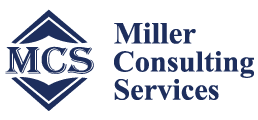Operating a successful Control Room can be daunting. It begins with understanding the requirements of 49 CFR 192.631 and 49 CFR 195.446 and ensuring that Control Room personnel remain alert and have access to monitoring equipment that allows them to minimize safety risks and economic losses. Operators use the following nine elements to provide a successful Control Room and maintain safe operations of the pipeline.
Roles and Responsibilities
Operators must clearly define roles and responsibilities of their Control Room personnel, especially for the following:
- Normal operations
- Abnormal operations
- Emergency operations
- Shift Handover procedures
- Qualifications of personnel who can direct or supersede the authority of the controllers
Adequate Information
Operators must create and provide the tools, procedures, and processes necessary for Control Room personnel to have the following types of adequate information:
- Industry best practices
- Implementation of API RP 1165 whenever SCADA is added, expanded, or replaced
- Point-to-point verification
- SCADA system tests
- Internal communication plan testing and verification
- Backup SCADA testing procedures
Fatigue Management
Operators implement the following methods to reduce the risk of Controller fatigue:
- Establish shift lengths and schedule rotations to provide off-duty Controllers sufficient time to achieve 8 hours of continuous sleep.
- Educate Controllers and Supervisors in fatigue mitigation strategies and how off-duty activities contribute to fatigue.
- Train Control Room personnel to recognize fatigue.
- Establish a maximum limit on Controllers’ hours of service.
Advanced Alarm Management
Operators must maintain a strong Alarm Management Program. This program must provide tools to consistently and effectively help the Controllers with the safe operations of the pipeline. Operators must consider the following for the Alarm Management Plan:
- Review SCADA safety-related alarm operations
- Identify at least once a calendar month points affecting safety that have been taken off scan in SCADA, inhibited alarms, false alarms, and forced or manual values
- Verify the correct safety-related set point values and descriptions
- Review the Alarm Management Plan at intervals not to exceed 15 months
- Address deficiencies identified through the implementation of plan
Change Management
Operators must evaluate, manage, and implement changes to operating practices for all Company assets. It must also establish communications between Control Room personnel, management, SCADA support, and field personnel when planning to implement physical changes to pipeline equipment.
Operating Experience
Operators must ensure that they review incidents/accidents to determine if the Control Room contributed to the event and correct, where necessary, deficiencies related to the following:
- Controller fatigue
- Field equipment
- Operation of any device
- Procedures
- SCADA system configuration
- SCADA system performance
Control Rooms must also include lessons learned from the Company’s experiences and implement these into the training program.
Training
Control Room training must review the training content to identify potential improvements at least once every calendar year. Training must incorporate the following:
- Response to Abnormal Operating Conditions (AOCs) that occur simultaneously
- Use of computerized simulator or non-computerized (tabletop) methods for recognizing AOCs
- Control Room roles and responsibilities under the emergency response procedures
- Knowledge of Pipeline System
- Periodic or infrequent pipeline operating set-up procedures
- Control Room team training that includes both controllers and other individuals
Compliance Validation
Operators must ensure that their procedures provide clear notification guidance to PHMSA and/or the appropriate state agency.
Compliance and Deviations
Control Rooms must provide the appropriate records that document current operating procedures and demonstrate that any deviation was essential for the safe operation of the pipeline.
Good News
Miller Consulting Services, Inc. (MCS) is committed to providing Operators with the technical documentation, regulatory compliance services, and data solutions needed to meet these nine elements. Its highly educated and knowledgeable consultants follow rigorous quality standards and proven methodologies that offer experienced documentation and audit support for Operators looking for additional help.
Contact MCS
Website: https://mcs.biz/
Email: mcs@mcs.biz
Phone: 972-580-0812
